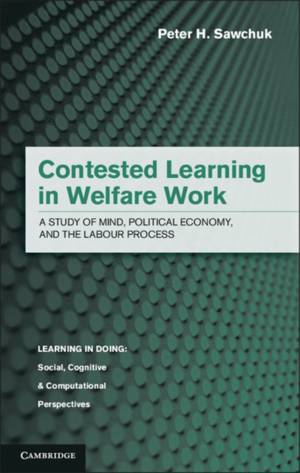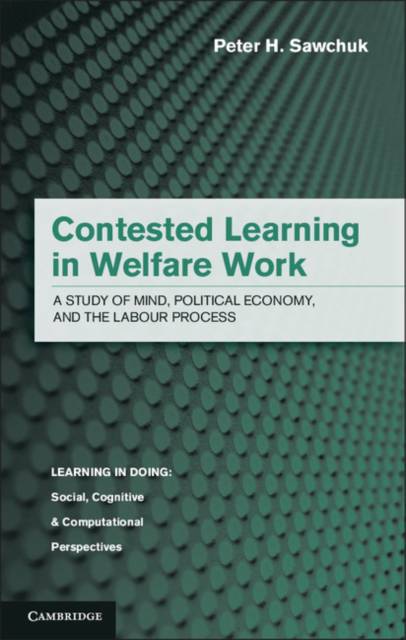
- Afhalen na 1 uur in een winkel met voorraad
- Gratis thuislevering in België vanaf € 30
- Ruim aanbod met 7 miljoen producten
- Afhalen na 1 uur in een winkel met voorraad
- Gratis thuislevering in België vanaf € 30
- Ruim aanbod met 7 miljoen producten
Zoeken
Contested Learning in Welfare Work
A Study of Mind, Political Economy, and the Labour Process
Peter H Sawchuk
€ 97,95
+ 195 punten
Omschrijving
Drawing on the field of cultural historical psychology and the sociologies of skill and labour process, Contested Learning in Welfare Work offers a detailed account of the learning lives of state welfare workers in Canada as they cope, accommodate, resist, and flounder in times of heightened austerity. Documented through in-depth qualitative and quantitative analysis, Peter Sawchuk shows how the labour process changes workers, and how workers change the labour process, under the pressures of intensified economic conditions, new technologies, changing relations of space and time, and a high-tech version of Taylorism. Sawchuk traces these experiences over a seven-year period that includes major work reorganization and the recent economic downturn. His analysis examines the dynamics between notions of de-skilling, re-skilling, and up-skilling, as workers negotiate occupational learning and changing identities.
Specificaties
Betrokkenen
- Auteur(s):
- Uitgeverij:
Inhoud
- Aantal bladzijden:
- 287
- Taal:
- Engels
- Reeks:
Eigenschappen
- Productcode (EAN):
- 9781107034679
- Verschijningsdatum:
- 17/06/2013
- Uitvoering:
- Hardcover
- Formaat:
- Genaaid
- Afmetingen:
- 170 mm x 244 mm
- Gewicht:
- 657 g

Alleen bij Standaard Boekhandel
+ 195 punten op je klantenkaart van Standaard Boekhandel
Beoordelingen
We publiceren alleen reviews die voldoen aan de voorwaarden voor reviews. Bekijk onze voorwaarden voor reviews.











